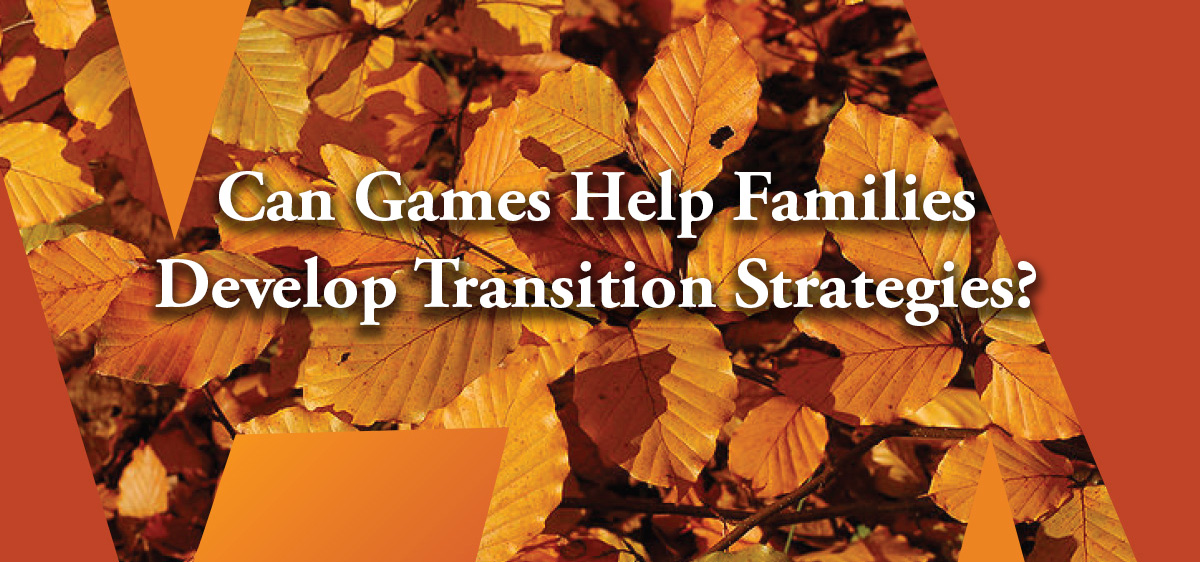Can Games Help Families Develop Transition Strategies?

I stood beside Dr. Camille Rutherford of Brock University at the Ultimate Gaming Challenge in Niagara Falls early in May. We watched two young guys perform in front of an Xbox, guiding a virtual raft down what looked like a rugged tributary of the Amazon.
“I’m interested in how games can help families in the transition process” I said to her. “What do you think?” Dr. Rutherford pointed to the two boys. “Those two boys just met today. Now they are learning communication, co-operation and team work as they try to survive obstacles and achieve a mutual goal.”
“Do you think that would help in a family business situation?” By the smile on her face I could tell the question was clearly rhetorical, however, it was also eye opening for me. When we approach an engagement to help a family with a transition plan one of the first objectives is to identify the areas family members have in common, including values and goals. Another early requirement is to identify existing formal and informal lines of communication and encourage better communication. Fear of conflict is one of the primary reasons family business leaders don’t lead the family into a transition process. Showing these leaders that effective communication will usually mitigate the conflicts will help them buy into the process. Use of games could be a non-threatening approach, alleviating that fear of conflict, or at least teaching family members how to manage the conflict to advance the family and that economic engine we call the family business.
Equally valuable, although perhaps less satisfying initially, is to find out that there are not enough common goals for the family to stay in business together. If that is the outcome of the initial transition planning, then it is better to know this early in the process so plans can be made for family members to take different economic paths while perhaps staying together as contributors to the family. Identifying this outcome early can save money and feelings.
Conflict can never be eliminated in relationships; indeed I understand that you can’t have progress without friction. However, if conflict and emotions can be channeled using games to help family members learn how to communicate and co-operate in a manner that satisfies all participants, perhaps the biggest hurdle to starting a transition plan will tumble and more of our valuable family businesses will survive to benefit future family members and their communities. It’s an idea worth pursuing. “Let the games begin!”
I will keep you posted.


 At Copper Beech Company, we believe that planning for the future helps create the future you want. We help clients identify goals and we care about the results our clients achieve. Whether the goals are improving financial position, growing the business, transitioning management and ownership. Helping Clarify goals, plan the route and holding the client accountable for achieving the milestones along the way is how we bring value to the engagement.
At Copper Beech Company, we believe that planning for the future helps create the future you want. We help clients identify goals and we care about the results our clients achieve. Whether the goals are improving financial position, growing the business, transitioning management and ownership. Helping Clarify goals, plan the route and holding the client accountable for achieving the milestones along the way is how we bring value to the engagement.